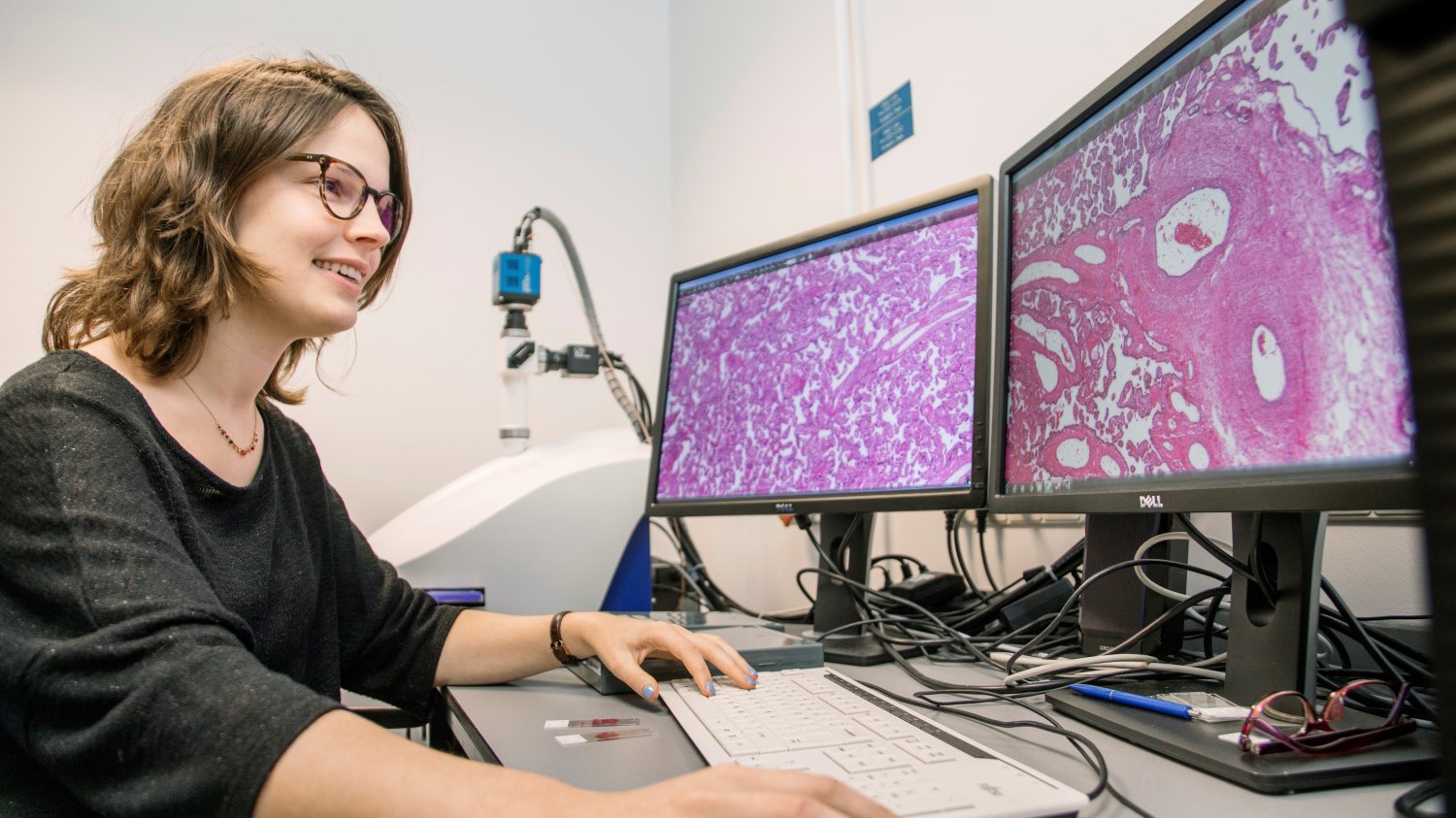Eikmans lab – Reproductive Immunology
During pregnancy, the placenta is important for growth of the baby. Immune adaptation of the mother is needed to maintain healthy pregnancy. Our research is aimed at understanding in healthy pregnancy how the pregnant woman immunologically tolerates her baby, and what mechanisms account for complications to occur in aberrant pregnancy. In detail, we investigate cellular and molecular mechanisms in the placenta, and closely look at immune features in maternal blood and fetal cord blood.
&width=826&height=464)
We are interested in the behavior of fetal trophoblasts and immune cells, in how they interact and influence each other, and in the mechanisms by which the phenotype and function of these cells are modulated.
The immunological studies are oriented on various clinical situations:
- Healthy, naturally conceived pregnancy.
- Pregnancy after oocyte donation, both healthy and complicated. Here we investigate the concept whether the maternal immune system needs to adapt even more to accept the fetus.
- Women with recurrent pregnancy loss. Here we study the characteristics of local immune cells, thereby especially looking at deviations in populations of regulatory T cells, myeloid cells, and natural killer cells.
- Women with chronic histiocytic intervillositis (severe form of placental inflammation): elevated frequencies of myeloid cells and T cells are observed in the placenta. We study the phenotypic and functional characteristics of these cells.
We are interested in the behavior of fetal trophoblasts and immune cells, in how they interact and influence each other, and in the mechanisms by which the phenotype and function of these cells are modulated.
The immunological studies are oriented on various clinical situations:
- Healthy, naturally conceived pregnancy.
- Pregnancy after oocyte donation, both healthy and complicated. Here we investigate the concept whether the maternal immune system needs to adapt even more to accept the fetus.
- Women with recurrent pregnancy loss. Here we study the characteristics of local immune cells, thereby especially looking at deviations in populations of regulatory T cells, myeloid cells, and natural killer cells.
- Women with chronic histiocytic intervillositis (severe form of placental inflammation): elevated frequencies of myeloid cells and T cells are observed in the placenta. We study the phenotypic and functional characteristics of these cells.
We use different techniques to analyze immune responses in pregnancy, including:
- Spectral flow cytometry for multidimensional analysis of cell suspensions derived from peripheral blood, maternal-fetal interface (decidua basalis, decidua parietalis), and intervillous blood.
- Imaging mass cytometry for in situ analysis of cells and their spatial orientation in the placenta.
- RNA sequencing and quantitative (q)PCR for transcriptome analysis in pregnancy-related materials.
- qPCR and digital droplet PCR for detection of maternal and fetal microchimerism.